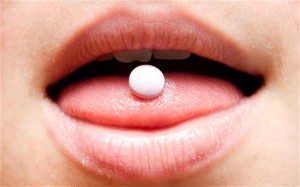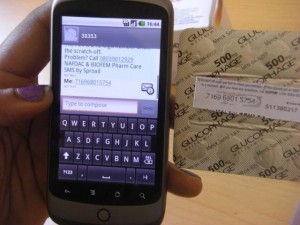FRIDAY, 18 APRIL 2014
Nearly a quarter of birth control pills analysed in a study were substandard or fake, according to researchers from the Georgia Institute of Technology (GT) who examined emergency contraceptive pills from Peru. Imitation and ineffective emergency contraceptives have also been reported in the United States, Angola, Ghana, Nigeria, and other parts of South America. The imitation pills and their packages can look identical to the real pills, putting women who think they are family planning at high risk of unwanted pregnancies.
"A woman who does not want to get pregnant and takes these emergency contraceptives will get pregnant," said Facundo M. Fernández, a professor in the School of Chemistry and Biochemistry at GT, whose lab investigated the contraceptives.
Pirate copies of contraception drugs may also contain toxic compounds that can cause serious harm.
"We detected that the active ingredient [levonorgestrel] was not there in one batch, instead those samples had a drug called sulfamethoxazole," Fernandez said. "It's a very common antibiotic. It can cause serious adverse reactions in some patients."

Identifying fake medications is a major challenge because the analytical methods are so time consuming. To speed analysis Fernandez's lab designed a tiered approach to allow quick screening for priority testing of suspicious pills. Using an ambient mass spectrometer, the scientists first tested whether the correct active ingredients were present by assessing the chemical signature of a pill. The second step was to dissolve the pill to assess its coating.
"Many fakes are very sophisticated. They have the right active ingredient and they may even have the right amount, but the excipients or coatings may not be the right ones," Fernandez said.
The researchers analysed thousands of tablets, collected from 20 different brands, manufactured in nine different countries (Argentina, Chile, China, Colombia, Hungary, India, Pakistan, Peru and Uruguay). The study sponsored by the ACT Consortium through a grant from the Bill and Melinda Gates Foundation was published 18th April in the journal PLOS ONE.
The researchers found that seven of the 25 batches analysed had inadequate release of levonorgestrel, and one batch was missing the active ingredient entirely.
"You really want to catch these fakes early, at the customs level or at the distribution center level," Fernandez said. "You don't want to wait for this to get to the pharmacy or for somebody to report it."
Fernandez's lab is working to make a portable test for rapid analysis of pharmaceuticals in the field. This would help regulatory agencies flag up counterfeit drugs before mass distribution.
The US Food and Drug Administration warned consumers in 2011 against using the Evital morning after pill amid counterfeit concerns.
The Nigerian National Agency for Food and Drug Administration and Control (NAFDAC) discovered three counterfeit batches of the popular emergency contraceptive Postinor 2 in one month in 2013. Postinor 2 is the most popular brand in Nigeria with an estimated 80% market share.
The counterfeit tablets were manufactured in Hungary but imported from China. NAFDAC forwarded the tablets to the World Health Organization (WHO), which sent samples to a forensic lab for further testing. Results confirmed the pills were missing the levonorgestrel active ingredient, and the WHO released Drug Alert 128.
In response the Society for Family Health in Nigeria launched a Mobile Authentication Service (MAS) for Postinor 2. Each box of authentic Postinor 2 now has a MAS code that users scratch to reveal. They send a free SMS to the provided number and get a response that verifies whether the product is real or fake.
While counterfeit drugs pose a considerable health risk to consumers, poor access to authentic and affordable medications provides a burgeoning market for manufacturing piracy.
Image credits: Top, Alamy. Bottom, Sproxil. Full article here.

